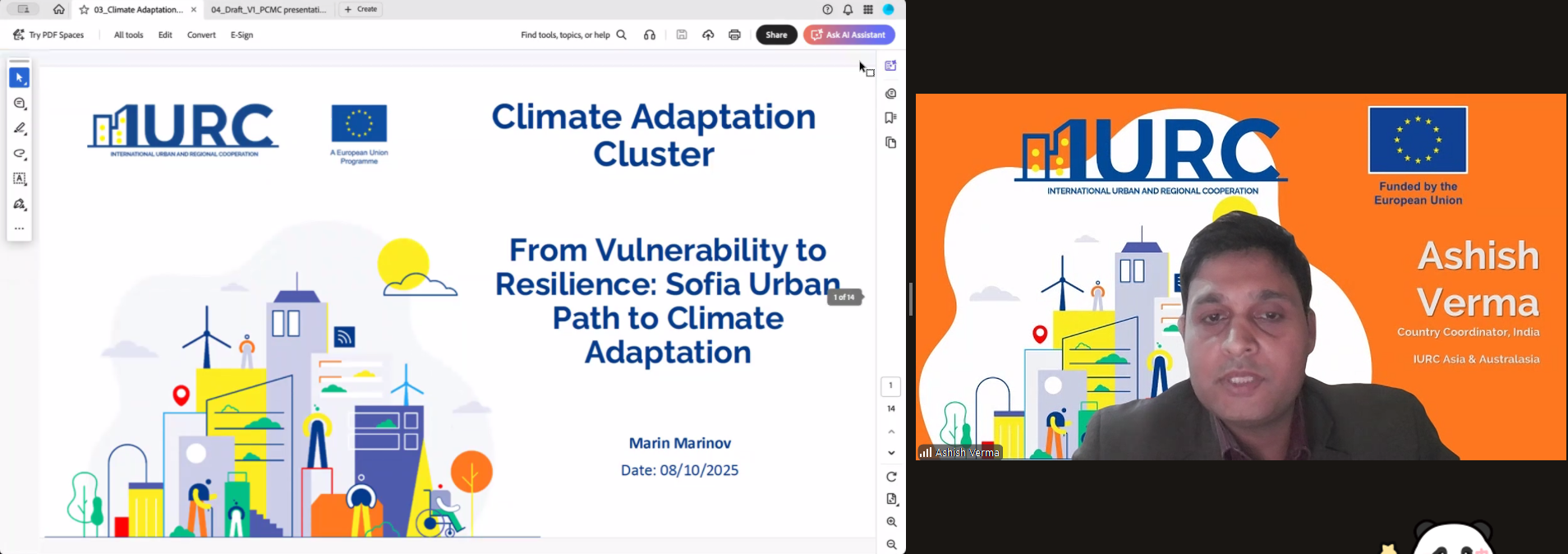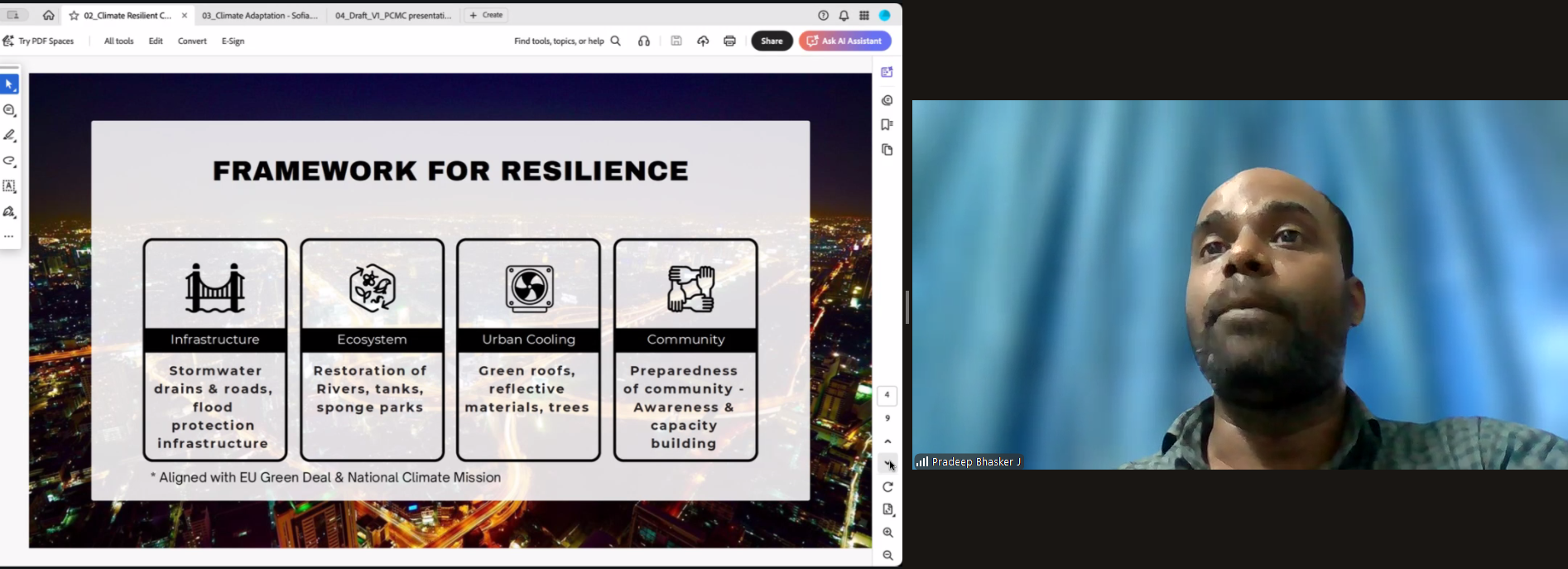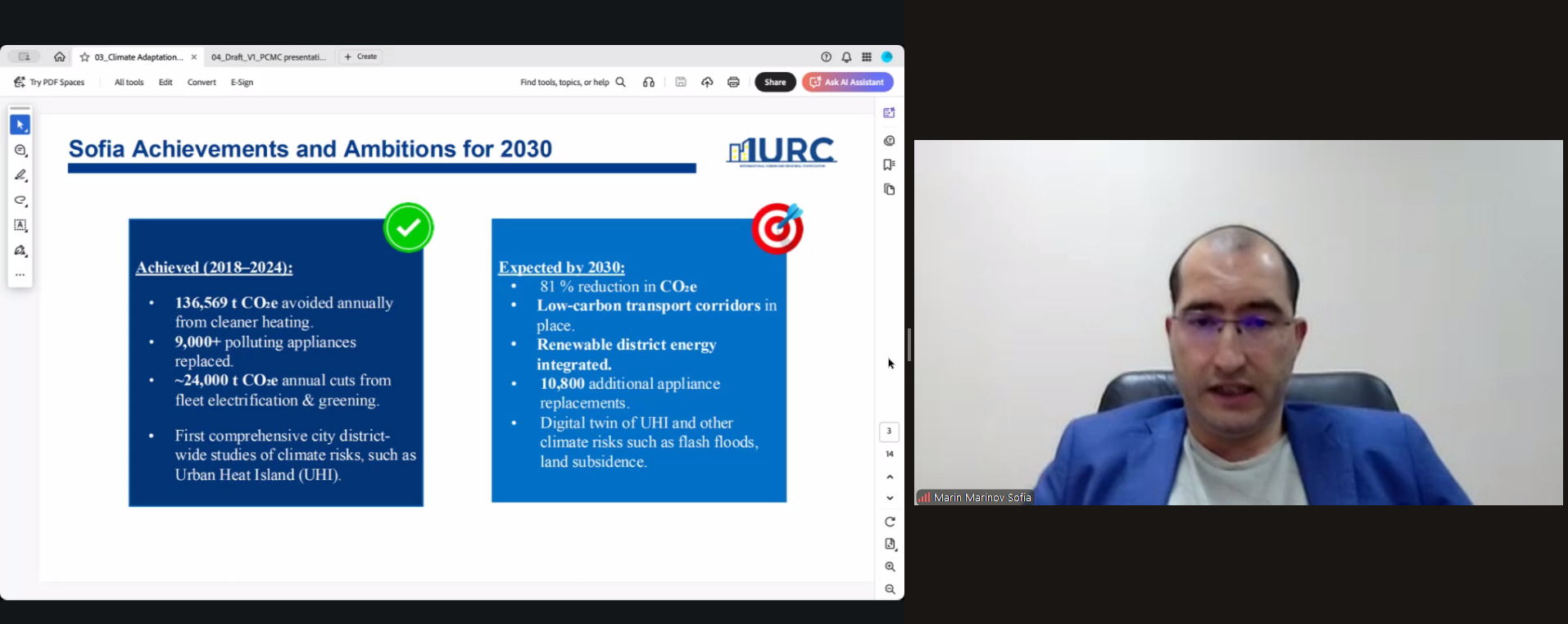7 October 2025 – Online session
The International Urban and Regional Cooperation (IURC) Asia & Australasia Thematic Network hosted an engaging session on Climate Adaptation in Urban Areas, showcasing initiatives from pilot cities Chennai (India), Sofia (Bulgaria), and Pimpri Chinchwad (India). The meeting brought together city practitioners, experts, and IURC partners to exchange experiences on building urban resilience through integrated adaptation measures.
Adapting Cities for a Changing Climate
Ashish Verma, Cluster Manager for Climate Adaptation, opened the session by outlining the agenda and emphasizing the increasing urgency of urban climate adaptation. He highlighted major climate hazards—such as urban flooding, heat stress, and water scarcity—and discussed how local governments can turn these challenges into opportunities for sustainable growth.
Ashish underscored the pivotal role of city networks like the Global Covenant of Mayors for Climate and Energy (GCoM) in advancing local climate action through technical support, peer learning, and data-driven planning. He also informed participants about the upcoming onboarding meeting for the Smart City Expo in Barcelona, where participating cities will exchange insights on urban resilience and innovation.

Chennai: Building a Climate-Resilient and Livable City
Pradeep Bhasker presented Chennai’s journey toward resilience, focusing on the city’s rapid urbanization and associated environmental pressures. He outlined key climate risks—including urban flooding, heat island effects, water stress, and sea-level rise—and introduced the Greater Chennai Corporation’s Resilience Framework, which rests on four pillars:
- Infrastructure resilience
- Ecosystem restoration
- Urban cooling
- Community preparedness
He detailed Chennai’s ongoing flood mitigation projects, integrated water management initiatives, and heat mitigation strategies, such as expanding urban green cover. Pradeep emphasized the value of international collaboration and technical partnerships in achieving a sustainable, climate-resilient future.

Sofia: From Vulnerability to Climate Neutrality
Marin Marinov shared Sofia’s vision to become a climate-neutral and smart city by 2030, charting the city’s path from vulnerability to resilience. He discussed challenges such as aging vehicle fleets, energy poverty, and heat stress, alongside achievements in greenhouse gas mitigation and climate risk assessment.
Sofia is expanding its low-emission zone, promoting clean heating solutions, and developing digital tools for urban climate management. Marin also introduced the city’s renewable energy communities (RECs), noting that the first REC was recently approved—marking a major milestone in Sofia’s citizen-led energy transition.

Pimpri Chinchwad: Mainstreaming Sustainability Through Finance and Innovation
The Pimpri Chinchwad Municipal Corporation (PCMC) presentation highlighted the city’s leadership in decarbonization, climate budgeting, and institutionalizing sustainability through a dedicated Climate Cell.
PCMC has set an ambitious target to reduce greenhouse gas emissions by 27% by 2030 across four key sectors. The city has already implemented initiatives such as solar rooftops, a waste-to-energy plant, and upgraded waste management systems. It also issued a green municipal bond to finance sustainable mobility projects and is actively exploring new green financing mechanisms for future actions.

Renewable Energy Communities and Citizen Engagement
The session concluded with an exploration of how climate adaptation intersects with renewable energy communities. Marin Marinov elaborated on Sofia’s evolving REC framework and its citizen participation platform, which enables residents to propose and vote on local sustainability projects.
